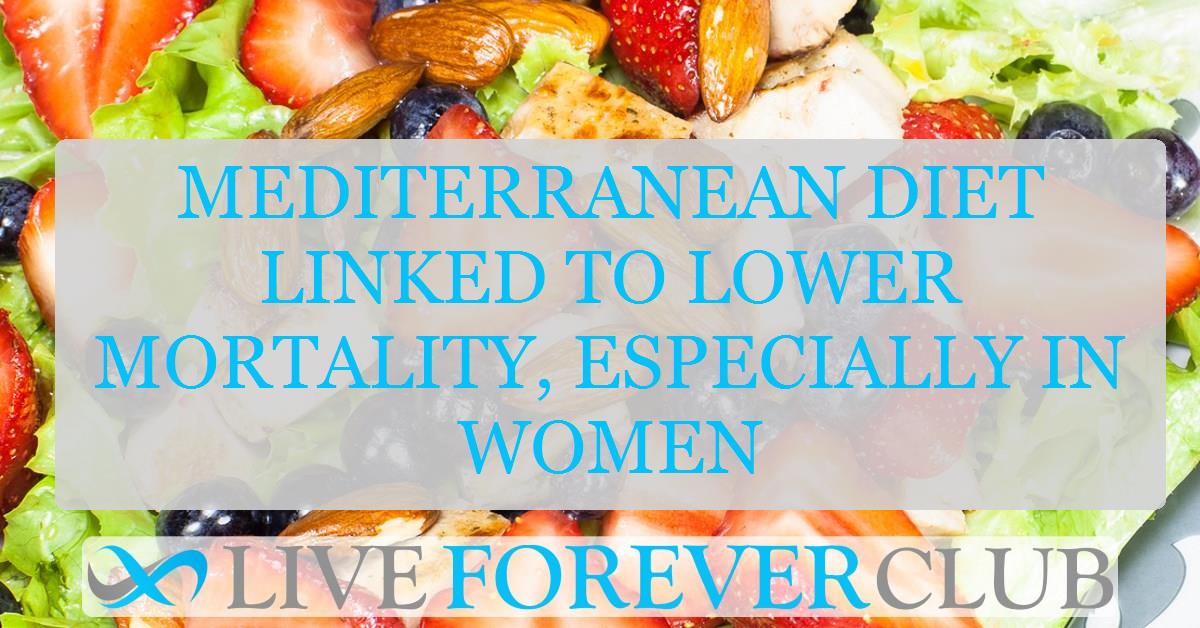The Mediterranean diet, a culinary symphony celebrated for its vibrant flavors and fresh ingredients, has long been hailed as a champion of health.
Latest findings from the Women's Health Study have just revealed that this dietary masterpiece holds a far more potent secret: it significantly slashes the risk of all-cause mortality in women. This study not only reinforces the diet's overall health benefits but also delves into the intricate biological dance that makes it so effective.
Mediterranean Diet
The Mediterranean diet extends beyond a simple set of dietary guidelines. It is deeply rooted in the cultural and historical traditions of countries bordering the Mediterranean Sea. The core components of this diet emphasize the consumption of a variety of plant-based foods. These include abundant fruits, vegetables, nuts, and whole grains. Olive oil serves as the primary source of fat, replacing other oils and fats. Fish is consumed regularly, though in moderate amounts, providing essential omega-3 fatty acids. The diet also features a limited intake of red meat and processed foods, which helps reduce the consumption of saturated fats and preservatives. Additionally, moderate wine consumption, typically enjoyed with meals, is a customary part of the Mediterranean diet, contributing to its unique dietary pattern.Historical evidence suggests that the populations adhering to this diet have lower rates of chronic diseases and higher life expectancies. Recognized by health organizations worldwide, the Mediterranean diet is considered one of the healthiest dietary patterns for cardiovascular health and overall well-being.
Women’s Health Study
The Women’s Health Study (WHS) is a landmark investigation that began in the 1990s, involving over 25,000 initially healthy women. Participants provided detailed dietary information and blood samples, allowing researchers to track health outcomes over an average of 24.7 years. This long-term follow-up is crucial for understanding the impact of dietary habits on mortality.
The WHS utilized a Mediterranean diet score ranging from 0 to 9, based on the intake of nine dietary components. Researchers categorized participants into low (0-3), intermediate (4-5), and high (6-9) adherence groups.
Mediterranean diet and mortality
The study found that higher adherence to the Mediterranean diet correlates with a significant reduction in all-cause mortality. Women in the highest adherence group (scores 6-9) had a 23% lower risk of mortality compared to those in the lowest adherence group (scores 0-3). This association remained significant even after adjusting for lifestyle factors such as smoking and physical activity.
Statistical analyses revealed that specific biomarkers played a role in this reduced mortality risk. Small molecule metabolites and inflammatory biomarkers were the most significant contributors, explaining 14.8% and 13.0% of the association, respectively. Triglyceride-rich lipoproteins and BMI each contributed 10.2%, while insulin resistance accounted for 7.4%.
Understanding the biomarkers
Biomarkers are biological indicators that can reveal underlying health conditions. In this study, small molecule metabolites and inflammatory biomarkers emerged as key players in the reduced mortality risk associated with the Mediterranean diet.
- Small Molecule Metabolites: These include substances like alanine and homocysteine. Their levels can indicate metabolic health and inflammation.
- Inflammatory Biomarkers: High-sensitivity C-reactive protein (hsCRP) and glycoprotein acetylation are markers of inflammation, which is linked to many chronic diseases.
- Triglyceride-Rich Lipoproteins (TRLs): Elevated TRL levels are associated with an increased risk of cardiovascular diseases.
- Body Mass Index (BMI): Lower BMI is generally a marker of better overall health and reduced risk of obesity-related diseases.
- Insulin Resistance: This condition is a precursor to diabetes and is influenced by diet and lifestyle.
Implications of the findings
The results of this study underscore the importance of dietary choices in promoting longevity. Adopting the Mediterranean diet can lead to significant health benefits, reducing the risk of mortality through various biological pathways. These findings have practical implications for public health guidelines, suggesting that dietary recommendations should emphasize the Mediterranean diet for its comprehensive health benefits.
Future research should continue to explore the mechanisms by which the Mediterranean diet influences health, potentially examining other biomarkers and pathways not covered in this study.
The Mediterranean diet stands out as a powerful tool for improving health and extending life. The Women’s Health Study provides robust evidence that higher adherence to this diet can significantly reduce the risk of all-cause mortality in women.
By focusing on a diet rich in plant-based foods, healthy fats, and moderate fish and wine consumption, individuals can harness the benefits of this time-tested dietary pattern.
As we continue to uncover the links between diet and health, the Mediterranean diet offers a promising pathway to longevity and well-being. Embracing this diet could be a key strategy for enhancing public health and reducing the burden of chronic diseases.
The study was carried out by Shafqat Ahmad and team from Harvard Medical School, Uppsala University and Brigham and Women’s Hospital. It is published in the journal JAMA Network Open.









